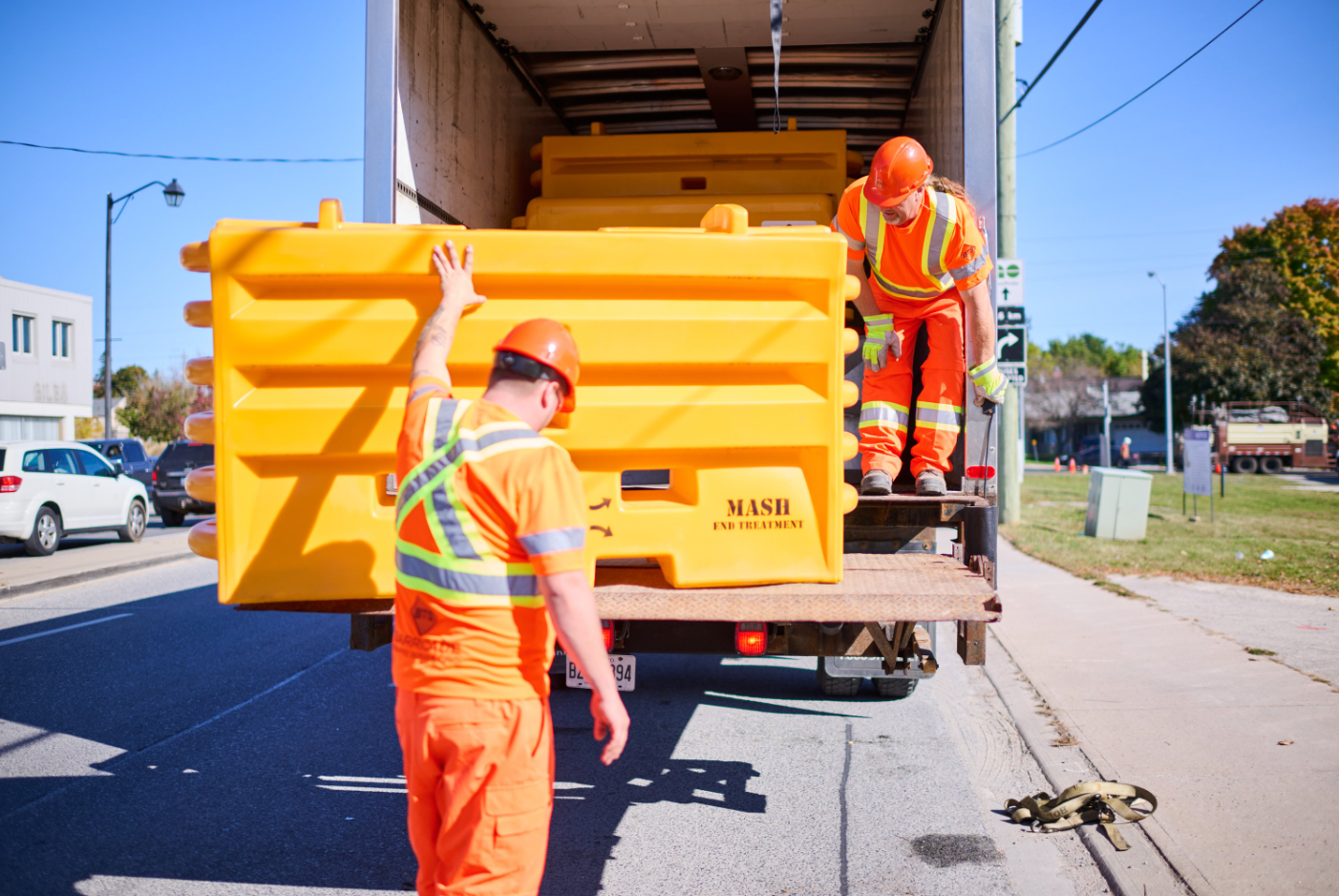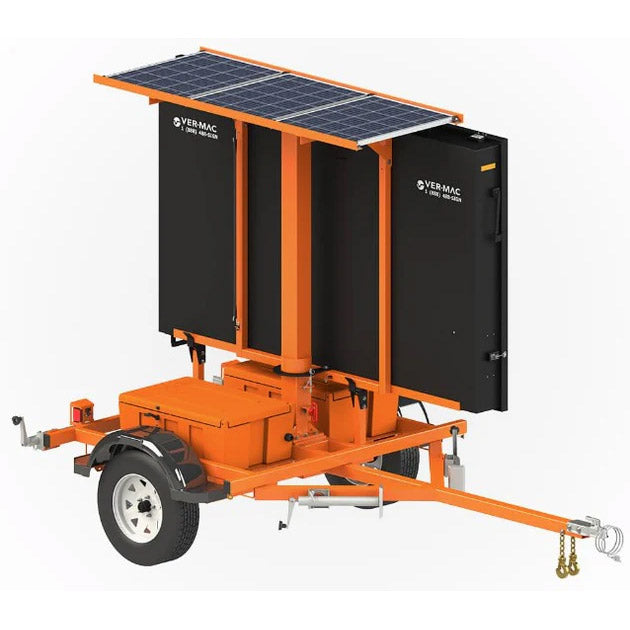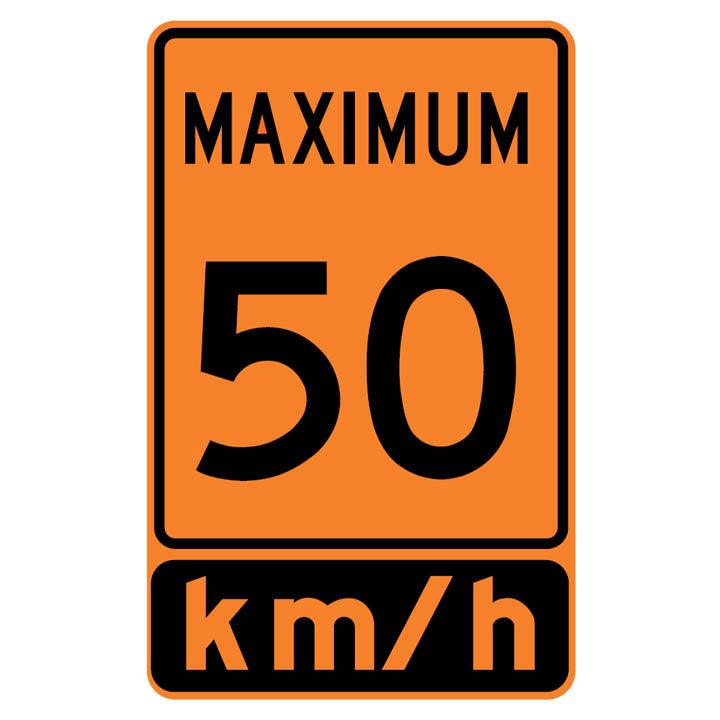
Alternatives to Concrete Jersey Wall Barriers
When it comes to traffic control and road safety, jersey wall barriers play a crucial role. These barriers are designed to protect workers, drivers, and pedestrians by creating clear, sturdy boundaries on roads, highways, and construction sites. Concrete jersey wall barriers come with a host of disadvantages that make them less ideal in many situations. Fortunately, there’s a better alternative—plastic jersey wall barriers.
What Are Jersey Wall Barriers?
Jersey wall barriers are modular barriers used to separate lanes of traffic, protect construction zones, and enhance safety on roadways. Originally developed to minimize vehicle damage in the event of a collision, these barriers are essential for traffic control and safeguarding people in high-risk areas. Jersey barriers are typically used in construction zones, along highways, and at large events where temporary traffic management and traffic control is needed.

The Downsides of Concrete Jersey Wall Barriers
Concrete jersey barriers come with several significant drawbacks:
- Heavy and Difficult to Transport: Concrete barriers are incredibly heavy, making them difficult and costly to transport. Specialized equipment is needed to move and install them, increasing both time and labor costs.
- Labor-Intensive Installation: Installing concrete barriers isn’t a simple task. It requires cranes, forklifts, and a crew of workers, leading to higher operational costs and longer setup times.
- Limited Flexibility: Once placed, concrete barriers are hard to reposition. This lack of flexibility is a major issue in dynamic construction zones where traffic patterns may need to change quickly.
- Prone to Cracking and Damage: Concrete is durable but not indestructible. Over time, concrete barriers can crack, chip, or even crumble, leading to costly repairs or replacements.
- Environmental Impact: The production, transportation, and disposal of concrete barriers have a large carbon footprint. Additionally, damaged concrete creates waste that’s difficult to recycle.

Why Are Plastic Jersey Wall Barriers Better?
At Barricade Traffic Services, we believe in providing the best solutions for traffic control—and plastic jersey wall barriers are the future of road safety. Here’s why:
- Lightweight and Easy to Transport: Plastic barriers are much lighter than their concrete counterparts, making them easier and cheaper to transport. This means quicker setups and lower transportation costs.
- Simple Installation: Unlike concrete barriers, plastic barriers don’t require heavy machinery for installation. They can be easily positioned by a small team, reducing labor costs and setup time.
- Flexible and Adaptable: Plastic barriers can be filled with water to add stability. When empty, they are easy to move and reposition, offering unmatched flexibility in dynamic environments.
- Durable and Long-Lasting: Made from high-quality, UV-resistant plastic, these barriers are designed to withstand harsh weather conditions without cracking or deteriorating.
- Environmentally Friendly: Plastic barriers can be reused for many years and are recyclable at the end of their life cycle, making them a more sustainable option.
- Enhanced Safety Features: Plastic barriers are designed to absorb and dissipate impact energy more effectively than concrete, reducing the risk of injury to drivers and workers.

Situations Where Plastic Jersey Wall Barriers Excel
Plastic jersey wall barriers are ideal for a wide range of situations:
- Construction Sites: Their lightweight nature allows for quick setup and repositioning, making them perfect for fast-paced construction environments.
- Special Events: From marathons to festivals, plastic barriers offer an easy way to control crowds and manage traffic flow.
- Emergency Situations: In the event of an accident or natural disaster, plastic barriers can be rapidly deployed to create safe zones and guide traffic.

Protecting Every Stakeholder
Plastic jersey wall barriers don’t just make life easier for traffic control companies—they enhance safety for everyone involved:
- Workers: The quick deployment and flexibility of plastic barriers mean construction zones can be secured faster, reducing workers' exposure to traffic hazards.
- Drivers: The impact-absorbing properties of plastic barriers reduce the severity of accidents, keeping drivers safer in the event of a collision.
- Pedestrians: Clear, sturdy barriers help guide foot traffic safely around construction zones and busy roadways.
- Project Managers: Lower transportation and installation costs mean projects stay on budget and on schedule.

Jersey Wall Barriers Offered By Barricade Traffic Services
At Barricade Traffic Services, we offer top-of-the-line plastic jersey wall barriers designed to meet all your traffic control needs:
- The Sentry Water Cable Jersey Wall Barrier: This innovative barrier combines water and cable reinforcement to provide maximum stability and impact resistance. It’s easy to set up, highly durable, and perfect for construction projects.
- Water-Wall, Water-Filled Jersey Wall Barrier: Lightweight and easy to deploy, this barrier is designed for quick installation and flexibility. It’s ideal for temporary traffic control at events, construction sites, and more.

Concrete jersey wall barriers have had their time, but the future of road safety lies in plastic barriers. Lightweight, flexible, and environmentally friendly, plastic jersey wall barriers offer unmatched benefits for every stakeholder—from traffic control companies to drivers and pedestrians.
Ready to make the switch to safer, more efficient traffic control? Explore our range of plastic jersey wall barriers today at Barricade Traffic Services and experience the difference for yourself!




